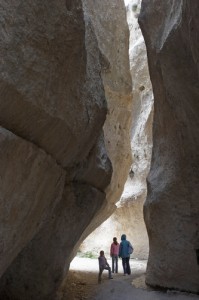ARTHUR ASKS:
Christians observe that the Son of God died to atone for human sins. But St. Paul says (Romans 1:4) that Jesus was “declared … to be the Son of God by his resurrection from the dead.” So apparently Jesus wasn’t divine when he died (or before). How then does atonement work?
THE RELIGION GUY ANSWERS:
A timely inquiry as Christians reflect on Jesus’ death and resurrection, and also due to the clash between two new scholarly books, “How Jesus Became God” by skeptic Bart Ehrman, answered simultaneously (!!!) by an international team of conservatives in “How God Became Jesus.”
Arthur cites a sentence Paul wrote only a couple decades or so after Jesus’ crucifixion, and “form critics” think the apostle was quoting from a previous creed so these words date back to Christianity’s earliest days.
Thanks to www.biblegateway.com, The Guy compared 46 English translations and found “declared” is the typical wording. Other versions say that by the resurrection Jesus’ divine Sonshop was “openly designated,” “publicly identified,” “demonstrated,” “proved,” “marked out” and “shown,” while Bible commentaries add “displayed,” “proclaimed” and “manifested.”
So the expert consensus agrees with the 8th Century theologian John of Damascus that Paul meant that by the resurrection “it was made plain and certain to the world that Christ was the Son of God.”
Note that all the translators say “by” the resurrection, not “at” or “with” or “upon,” which could indicate Jesus’ divinity originated only at Easter. All this agrees with the early belief found elsewhere in the New Testament that Jesus was divine in his earthly life and beforehand (for instance Matthew 27:54, John 1:1-3, I Corinthians 2:8, Philippians 2:6).
But get this: A favorite conservative translation of the Bible could be read as suggesting Jesus only became God at Easter. The 2011 edition of the New International Version says Jesus was “appointed the Son of God” by the resurrection, vs. “declared” in earlier N.I.V. editions. Similarly, the first edition of U.S. Catholics’ New American Bible (1970) said Jesus was “made” the Son of God by Easter. The 1986 N.A.B. revision changed that to the ambiguous “established,” which to average English readers could mean either newly established or established for everyone to see.
Then, how does atonement “work”? What does it mean that “Jesus saves” or “Jesus died for our sins”?








